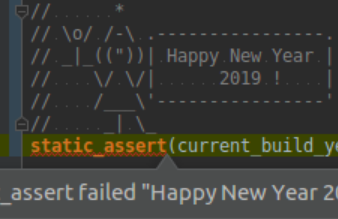The SoA Vector – Part 2: Implementation in C++--Sidney Congard
The series continues and end.
The SoA Vector – Part 2: Implementation in C++
by Sidney Congard
From the article:
Like we saw in the first part of this series on SoA, the SoA is a way to organise the data of a collection of objects to optimise the performance of certain use cases: traversing the collection by accessing the same data member of all the objects:
struct person { std::string name; int age; }; std::vector<person> persons = ... for (auto& person : persons) { ++person.age; } struct person { std::string name; int age; }; std::vector<person> persons = ... for (auto& person : persons) { ++person.age; }The SoA in its barest expression is this:
struct persons { std::vector<std::string> names; std::vector<int> ages; }; struct persons { std::vector<std::string> names; std::vector<int> ages; };By putting all the ages next to each other in memory, we optimise the performance of the traversal. But such a structure is not a container in itself, and is in particular not compatible with the STL.
Let’s design an SoA collection with an interface as close as possible to std::vector<persons>, but with the SoA structure of components stored in separate arrays...

 A retrospective of all the things that happened in C++-dom in 2018:
A retrospective of all the things that happened in C++-dom in 2018: May your new years ever be happier than your old years -- now there's a great use for a monotonically increasing function!
May your new years ever be happier than your old years -- now there's a great use for a monotonically increasing function!